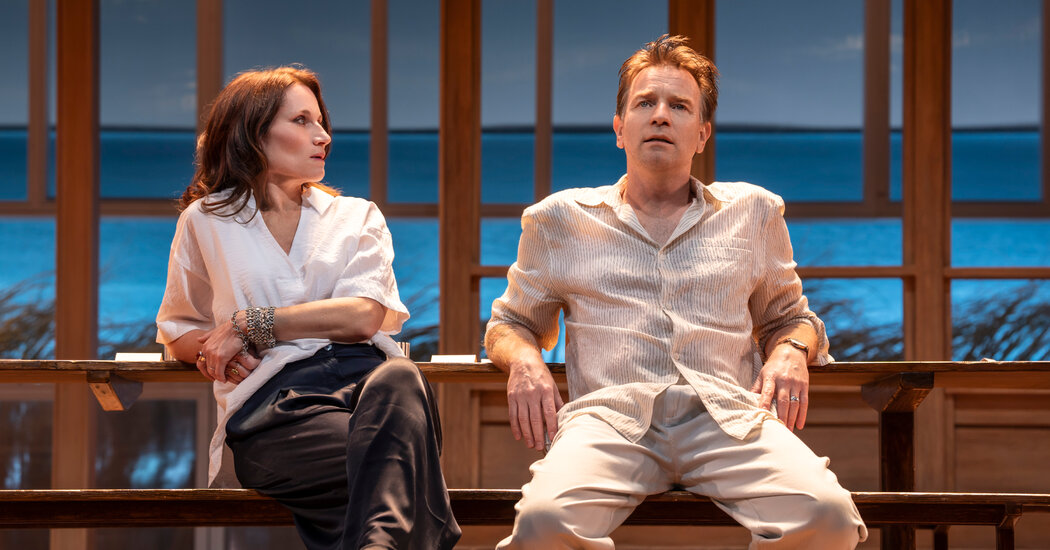Exploring ‘My Master Builder’: A New Interpretation of Ibsen’s Classic
In the latest theatrical adaptation of Henrik Ibsen’s renowned play, ‘The Master Builder’, Ewan McGregor takes center stage in London’s Wyndham’s Theater. This new version, titled My Master Builder, is penned by playwright Lila Raicek and directed by Michael Grandage. It runs through July 12.
Setting the Scene
The setting transports audiences to the picturesque Hamptons, where an elegant dining room overlooks the seaside landscape, complete with the sound of chirping crickets. In this atmosphere, McGregor embodies the character of Solness, a distinguished architect grappling with both personal and professional crises. His marital relationship with Elena (played by Kate Fleetwood) is on shaky ground as they prepare for a party celebrating his latest architectural achievement—a futuristic church built in memory of their deceased son.
A Modern Reinterpretation
Raicek’s version aims to spotlight the play’s female characters and retell the narrative through the framework of the #MeToo movement. However, critics argue that this approach simplifies the intricacies of Ibsen’s original work, reducing its depth to a mere marital drama.
Character Dynamics
Among the party guests is Mathilde (portrayed by Elizabeth Debicki), a figure from Solness’s past with whom he had an affair when she was a student. The revelation of their romance previously provoked a fierce response from Elena, revealing underlying tensions that resurface as Elena prepares for divorce and offers to publish Mathilde’s novel about their affair out of spite.
Dialogue and Performance
The dialogue oscillates between melodrama and sarcasm, incorporating modern references to social issues such as cancel culture and power imbalances. While some phrases aim for contemporary relevance, critics found the dialogue occasionally fell flat, bordering on cliché.
McGregor’s performance, while highly anticipated due to his return to British theater after a 17-year hiatus, has drawn attention for its lack of emotional engagement. His portrayal of Solness appears neither commanding nor desperately lovesick, failing to connect with the audience emotionally.
Supporting Roles and Parallels
Fleetwood’s portrayal of Elena stands out. She conveys a range of emotions—from indignation to brief moments of vulnerability—holding the narrative together. Meanwhile, her interactions with the younger rival, Ragnar (played by David Ajala), who is depicted in an exaggerated manner, added to the production’s challenges, requiring a level of wit that the script struggled to provide.
Conclusion: A Missed Opportunity?
The climactic moments follow Ibsen’s original plot, yet this modern adaptation may dilute the thematic richness and complexity that characterized the source material. Instead of exploring the profound conflict within Solness, the interpretation presents a standard midlife crisis, diminishing the existential weight that Ibsen intended.
As audiences engage with My Master Builder, they find a production that aims for contemporary relevance but may miss capturing the intricate layers of tragedy present in Ibsen’s original. In the effort to address contemporary themes, the essence of ‘The Master Builder’ risks becoming overshadowed.
For more information, visit My Master Builder’s official site.


